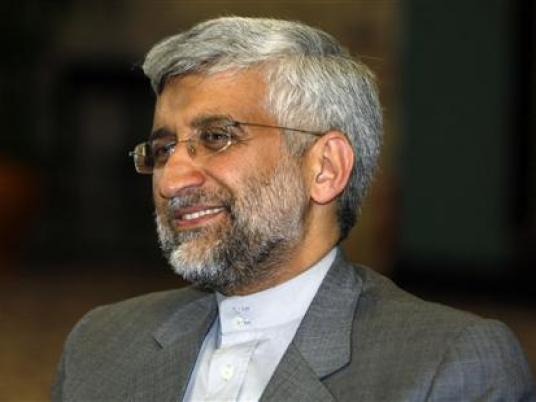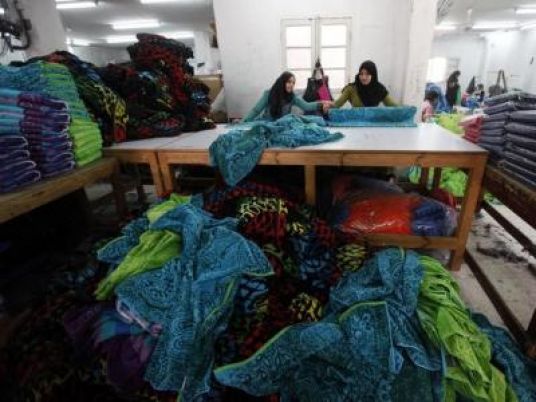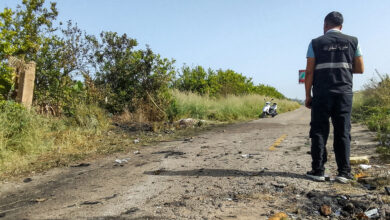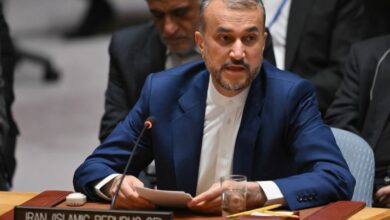
BAGHDAD — World powers began talks with Iran on Wednesday to test its readiness under pressure of sanctions to scale back its nuclear program, seeking to ease a decade-old standoff and avert the threat of a Middle East war.
The stakes could hardly be higher: global oil markets are edgy over sanctions on Iran's vital crude exports and the possibility of Israeli strikes against its defiant arch-enemy, which has threatened reprisals if it comes under attack.
Wednesday's meeting between Iran and six world powers — the United States, Russia, China, Germany, France and Britain — was the second since diplomacy resumed in April in Istanbul after a 15-month hiatus, during which tensions soared.
The powers' overall goal is an Iranian agreement to measures that would allay suspicions it is trying in secret to design a nuclear weapon. Iran's priority in the negotiations will be to win relief from punitive economic sanctions.
A proposal by the six, led by EU foreign policy chief Catherine Ashton, would address concerns over Iran's enrichment of uranium to a fissile concentration of 20 percent, Ashton's spokesman Michael Mann said after the talks started. That is the issue that most worries the West.
"You are not going to get a dramatic happening today, I don't think," Mann told reporters. "We are going to make solid progres if things go well."
Among the proposed steps will be an updated version of an idea first floated in 2009 that envisaged Iran shipping out the bulk of its stockpile of low-grade uranium — which is potential nuclear weapons fuel — in return for higher-enriched fuel for a medical research reactor in Tehran, a diplomat said.
Iran hopes for ‘good news’
Iranian Foreign Minister Ali Akbar Salehi, speaking to reporters in Tehran, said, "The ideas fielded to us speak of the fact that the other side would like to make Baghdad a success. We hope that in a day or two we can bring good news."
Salehi also warned that Iran would not bow to pressure. "Their policies of pressure and intimidation are futile. They have to adopt policies to show goodwill to solve this issue."
Russia said the Islamic Republic appeared ready for serious discussion of substantive steps to resolve the impasse in return for the phased removal of sanctions.
"We got the clear impression (in expert-level meetings ahead of the Baghdad talks) … that the Iranian side is ready to seek agreement on concrete actions" under a step-by-step process, Foreign Minister Sergei Lavrov said in Moscow.
The immediate aim of the six global powers is expected to be an Iranian agreement to shut down the higher-grade uranium enrichment that it launched two years ago and has since expanded in an underground plant at Fordow that, to Israeli alarm, would be largely impervious to attack from the air.
Producing such highly refined material in quantity shortens the time Iran might require to assemble a nuclear explosive.
Iran, the world's number five oil exporter, says its nuclear energy program is a peaceful bid to generate more electricity for a burgeoning population. Tehran has repeatedly ruled out suspending enrichment as called for by several UN resolutions.
It has hinted at possible flexibility on the higher-grade enrichment of uranium, but analysts say Tehran would be unlikely to compromise much while sanctions remain.
Around 15,000 Iraqi police and troops were protecting the venue in Baghdad's fortified Green Zone, a frequent target of militant attacks. Tehran's suggestion of a meeting in troubled Iraq, whose leadership is friendly to Iran, was seen by some diplomats as a test of Western commitment to securing a deal.
"Istanbul was important because for us it was a test of the Iranians' willingness to engage. Baghdad should focus on concrete substance," a European diplomat said. "The ball is in their court. It is they who must make the first step."
Inspection deal ‘close’
In a possible sign of a new Iranian willingness to address concerns about its atomic ambitions, the UN nuclear supervisor said on Tuesday he expected to sign a deal soon to unblock an investigation into suspected work on atom bombs.
But Western officials note past failures to carry out deals on more intrusive inspections between the International Atomic Energy Agency and Iran, and their patience is running out.
Iran maintains that it needs uranium refined to a fissile concentration of 20 percent for its medical isotope reactor. Enrichment to 5 percent of fissile purity is suitable for power plant fuel, while 90 percent constitutes fuel for bombs. The technical leap from 20 to 90 percent is easier than that to reach 20 percent from 5 percent.
"The key issue is the 20-percent enrichment potential. This has to be addressed in order to have a productive outcome," said one Western diplomat. "The marching orders for Baghdad are to have concrete ideas on the table, maybe not necessarily agree on all details of these ideas, but to have a clear commitment."
Some Iranian officials kept up a defiant tone.
"The wall of distrust between Iran and the West is high and our public opinion has serious doubts about their compliance with their obligations. The negotiations … are a good litmus test to prove the West's goodwill," Iranian Press TV quoted Kazem Jalili, spokesman for parliament's national security and foreign policy committee, as saying on Wednesday.
Sanctions, carrots and sticks
Iran has suggested it will try to leverage its reported rapprochement with the IAEA into a deal in Baghdad to relax sanctions inflicting increasing damage on its economy, including a European Union oil embargo due to take effect in July.
But Western officials ruled out such a weighty concession so soon, even though their call for a "step-by-step" negotiating process is widely seen as a tacit admission that sanctions will have to be eased at some point.
"Sanctions are only going to be lifted if we have significant and genuine progress," one diplomat said.
Israel, widely assumed to have the Middle East's only atomic arsenal, has made clear its skepticism about the chances for diplomacy to rein in its arch-enemy.
Defence Minister Ehud Barak said Israel was concerned that the world powers would not press hard enough to put a full stop its nuclear program and that Israel would keep all options open — an allusion to military action — to achieve that goal.




